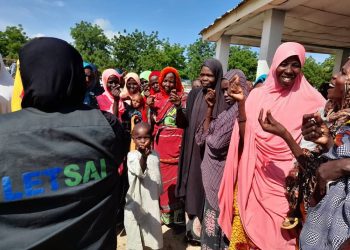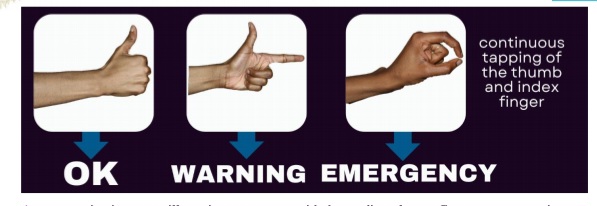Six year-old Faiza Lukman* ran to hide herself whenever she saw a particular man around her. It’s later revealed to be a man, who had a carnal knowledge of her when she was five.
The little Faiza was willing to take revenge, but she knew not how to communicate this to her mother or elders anytime she was scared or traumatised with the appearance of the man, Mohammed Ali.
Instead, she kept on sustaining injuries day in and day out, while trying to run for safety.
Based on the statistics by Rainn, 93 per cent of perpetrators of child sexual abuse are known to the victims. According to the mother of the victim, Mrs Nada*, the perpetrator, lived in the same area with them and fond of jokingly calling the victim his wife, an action that always infuriated the little girl.
“Her siblings are all aware, but whenever she sees him, she can’t say he is here. But you will see her struggling to hide herself.
‘The trauma made the girl to lose her ability to talk, caused her brain impairment and fractures on her hands and leg,” said the mother.
Gender-Based Violence is one of the most prevalent human rights violations in the world. It undermines the health, dignity, security and autonomy of its victims, yet it remains shrouded in a culture of silence.
THE FEAR OF BEING RAPED AGAIN
Faiza cannot play among her peers without her being mocked as a survivor. She uncontrollably urinates on her body and uses pampers as a result.
She is suffering from Vesicovaginal Fistula (VVF), which medical doctors said cannot be operated until she clocks 9.
“This has worsened her health and resulted in infection,” said Mrs Nada.
In spite of the court verdict in May 2022, the mother said the perpetrator still mocks and traumatised the little innocent child.

MORE CASES ATTACHED TO THIS PERPETRATOR
Faiza is not the only victim in his hand, he had raped two others too. But unlike Faiza, one of the two other victims can communicate to her mother or a trusted associate through gestures whenever the perpetrator threatens to rape her again.
Globally, it is estimated that up to 1 billion children aged 2–17 years, have experienced physical, sexual, or emotional violence or neglect in the past year.
Similarly, every nine minutes, child protective services substantiate or find evidence for a claim of child sexual abuse. One in nine girls and one in 53 boys under the age of 18 experiences sexual abuse or assault at the hands of an adult.
Violence against children is a multifaceted problem with causes at the individual, close relationship, community and societal levels. This is, however, be prevented through the voiceless messages introduced by the Learning Through Skills Acquisition Initiative (LETSAI).
According to World Bank, failure to address this issue also entails a significant cost for the future. Numerous studies have shown that children growing up with violence are more likely to become survivors themselves or perpetrators of violence in the future.
Nevertheless, identifying who to talk to, how to report it and how to follow-up on the case without being threatened is one of the bottlenecks Faiza’s Mother struggles to live with everyday.
HOPE FOR A SOLUTION – THE VOICELESS MESSAGES
Gender-Based Violence can occur at any point in a person’s life, in times of peace or instability. But in crisis settings like Borno threats soar at the height of Insurgency.
Many armed groups also use sexual violence as a tool of warfare to advance military or political aims. All the while, girls and women may be forced to trade sex for food, money and other resources they need to survive. In some places, they are married off early or forcefully, to protect or care for their families.
Between 2005 and 2020, parties to conflict raped, forcibly married, sexually exploited, and committed other grave forms of sexual violence against at least 14,200 children. This sexual violence disproportionately affects girls, who were 97 per cent of the cases from 2016 to 2020.
According to a Consultant with LETSAI Susan Tanwie, many times, survivors of Gender-Based Violence especially women and girls have found themselves in situations where they cannot report abuse by talking, especially when the perpetrator is close by.
As such LETSAI resolved to use voiceless messages (sign language) to communicate abuse with survivors. This voiceless messaging comprises three different signs. First, an okay response, shown with the thumb up. This specific sign is used by the survivor to confirm the response. Second, a pointing index finger sign, which is used by either the reporter or the staff to confirm if the perpetrator is close by to the reporter; and third is the tapping sign of the index as well as the thumb, which signifies danger. The faster the tapping, the more severe the situation of the reporter. The sign is only used by the survivor or reporter and slow taps between the index and thumb finger signify a threat but no danger.
From January 2020 to December 2022, Test-run research on the voiceless messages conducted in Shani and Dikwa Local Government Areas of Borno revealed that a total of 755 participants reported cases of GBV through the voiceless reporting method. The cases reported included intimate partner violence, rape, sexual harassment, denial of resources and physical abuse.
The Founder / Executive Director LETSAI, Maryam Oyiza Aliyu, however, said the voiceless communication method can be used in other locations beyond Shani and Dikwa LGAs.
“Since the launch of this initiative, we have received interest and inquiries from several organisations and communities across Nigeria and other countries who are interested in using this approach to support survivors of gender-based violence and sexual exploitation, abuse, and harassment.”
“While the voiceless approach was primarily designed for use by adults and older children, who have the cognitive ability to understand and use the signs effectively, it is possible to adapt the method for use by younger children who may not have the same level of comprehension and age-appropriate information on how to seek help and report abuses,” Aliyu noted.
LETSAI
In March 2022, LETSAI, a youth-led, women and girl-child non-profit organisation signed a partnership agreement with UNICEF, titled Increasing Access to Comprehensive and Gender-Responsive Services for Children and Survivors of Gender-Based Violence (GBV) in Dikwa and Shani Local Government Areas of Borno state (ACCESS-G) of lifesaving support.
There is now a heightened awareness that reporting abuse can be done anonymously using sign language. Primary and secondary school students are now utilising sign language to report cases of abuse, thereby the initiative has resulted in successful prosecutions of several perpetrators of abuse.
LETSAI is committed to continuing raising awareness about this approach and working with partners to ensure that survivors of gender-based violence and sexual exploitation, abuse, and harassment have access to the support and services they need.
Names with asterisks were changed to protect the source.
This story has been made possible by Nigeria Health Watch with support from the Solutions Journalism Network, a nonprofit organization dedicated to rigorous and compelling reporting about responses to social problems.

